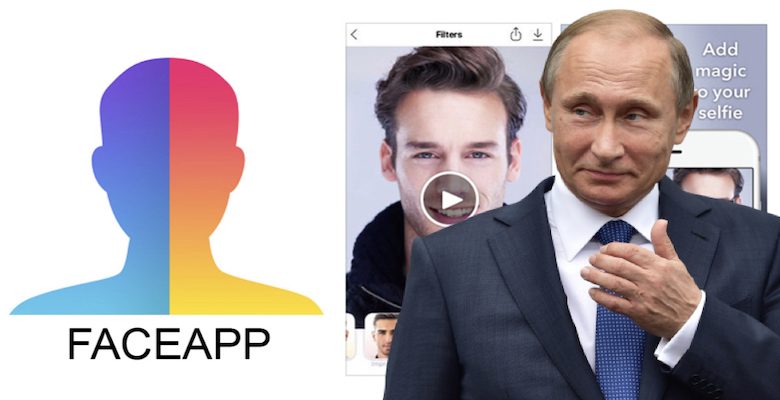
FaceApp: How The Russians Fooled Everybody!
Don’t look now, but the Russians got us once again. This time, it was with a Facebook app called ‘FaceApp.’
Technology
FaceApp users were instructed to upload a current photo of themselves into the app then watch as it ‘aged’ them into what they might look like 30 years or so from now. Not surprisingly, FaceApp went viral and EVERYBODY from kids to celebrities to every day Americans raced to social media to post the before and after pics of them as young and old.
The only problem is, nobody bothered to read the little fine print the Russian FaceApp creators posted that gave them everything but a user’s first-born.
You grant FaceApp a perpetual, irrevocable, nonexclusive, royalty-free, worldwide, fully-paid, transferable sub-licensable license to use, reproduce, modify, adapt, publish, translate, create derivative works from, distribute, publicly perform and display your User Content and any name, username or likeness provided in connection with your User Content in all media formats and channels now known or later developed, without compensation to you.
Wow! That’s quite a one-sided policy agreement. Too bad millions of people clicked on FaceApp and skipped passed reading the fine print just to get to the fun of seeing themselves in 30 years. Now, they’re all paying the price for their ways.

.
Users unknowingly gave away the rights to all their current and future photos as well as all their Facebook user data to the Russians for perpetuity. They also agreed the images could be modified and published forever without compensation. This means that FaceApp could take the photo of a celebrity, use it in a commercial ad anywhere in the world, then NEVER pay said celebrity a dime for their promotional services. It also means FaceApp now has irrevocable access to a user’s social media photos and data until the end of time.
“Privacy invasions often sneak in through ‘fun’ disguises,” cybersecurity and privacy reporter Alfred Ng said, pointing out that Cambridge Analytica used Facebook in 2016 to get all the data it needed using quirky personality quizzes.
“It’s important for people not to fall for these traps. It’s like Hansel and Gretel and the candy house.”

Or, in other words, we shouldn’t click on every shiny item we see on the internet just because it looks fun. Usually, it’s not there for our pleasure and enjoyment but is merely a trap.
The Russians got the best of us in 2016 because we weren’t prepared. Now, the Russians have gotten the best of us once again because we’re STILL not prepared. We’re still too trusting. We’re still too cocky in convincing ourselves that it can never happen to us.
Well, it did happen to us. FaceApp was a test — and we all just failed it miserably. The Russians now have a treasure-trove of American images and data that people freely handed to them because they were too lazy to read the agreement. This time, the Kremlin didn’t have to steal a thing.
Well played, Russia. Well played!






Thanks DJ. I had heard about FaceApp but I really hadn’t paid much attention to it since it didn’t affect me in at all. I totally reject any, and ALL, aspects of Facebook. Full Stop. But back to DJ’s post.
Re; the FaceApp policy agreement
I’ll cosign DJ: “Wow! That’s quite a one-sided policy agreement.”
As a nation and a a people, I think most Americans tend to be arrogant, incredibly UNinformed, predictable and therefore very easily Played.
I also believe that collectively those factors are the main reason We’re in so much trouble today…smh.
I saw this thing on Facebook but I did not use it. Number one I have no interest to see myself old and number two I try to say away from all those games and quizzes on there. I already heard most of them are fake just to get your information and I am glad I followed my first mind and stayed away.